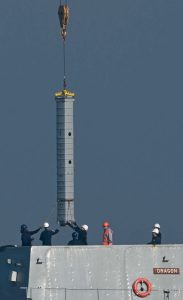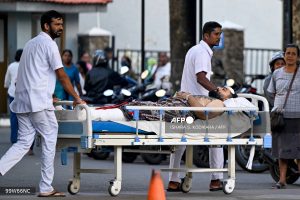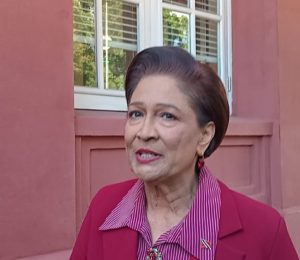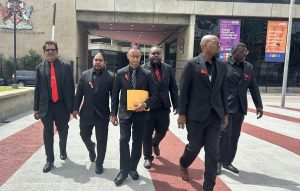CURRENT law in Trinidad and Tobago allows a police officer or the Director Public Prosecutions (DPP) to go to a judge after bail is granted to have it revisited and even revoked.
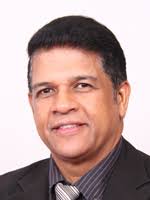
This was stated by Opposition Member of Parliament Prakash Ramadhar in a release on Wednesday.
He made the comment in the wake of a press conference on Tuesday by Attorney General Faris Al-Rawi who called on the public to put pressure on the Opposition to have the Bail Amendment Bill to be taken back to Parliament.
The bill, which requires a three-fifths majority to be passed, proposes no bail for 120 days for persons charged with firearm offences. It was not approved in the Lower House last Friday after the Opposition abstained from voting.
Opposition Leader Kamla Persad-Bissessar said the United National Congress (UNC) did not support the bill because it did not have the proper checks and balances.
She said, “It is something that can be a weapon in the hands of the political directorate and therefore we were not of the view that we should support the bill at this time.”
During its time in office, the People’s Partnership (PP) government did pass a similar law, but Persad-Bissessar said that piece of legislation was different and not draconian and against poor black people.

At his news conference, Al-Rawi said 6,387 people were charged for firearm possession between 2009 to 2019 with 17,271 firearm related offence being committed in TT over that same period.
He said between 2015 to 2019 there were 1,619 murders committed with firearms. He said 638 of those murders were classified as gang related.
Al-Rawi also noted that Police Commissioner Gary Griffith who was a national security minister under Persad-Bissessar was now calling for the bill to be passed to help the police in crime fighting.
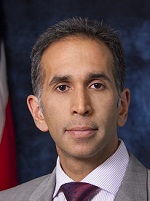
In his release, Ramadhar said, “There is now in the public domain an issue that has created controversy as to whether the Opposition should support the present Bail Amendment to prevent persons from accessing bail from the moment they are first charged for the possession of a firearm.
“It would seem very reasonable in the circumstances of high criminality of gun crimes to do so. But let us pause for a moment to ascertain what this truly involves.
“Every citizen of Trinidad and Tobago, who are charged, should always have access to the courts to determine at the end of the day, their innocence or guilt. Bail is a holding position to ascertain and to allow them to continue with their lives; there being a constitutional presumption of innocence, until their trial is concluded.
“To remove access to the court and to bail is a serious and dangerous thing.”
He said there was a fundamental distinction between the legislation brought by the PP government and the one trying to be passed in Parliament now.
Ramadhar said the PP’s law was “brought with a sunset clause, meaning after the passage of a certain date the law would have fallen and that the person must have had a prior brush with the law.”
He said, “… under our present law there is a provision in our law as it stands (Section 11 of the Bail Act) today that any police officer or the DPP, who are dissatisfied with the award of bail can go to the High Court and even to the Court of Appeal to have that matter revisited to the extent that bail can be revoked.
“That is a crucially important tool in the armoury of the Police Service. But I have not heard this matter debated and I think the Attorney General will do well to inform the nation as to the options available to us.”
Ramadhar also made reference to the limited state of emergency called by the PP to deal with the crime situation.
He said, “We have heard statements referencing the arrest of several hundreds of young men in the society after the declaration of a State of Emergency. Regrettably, many who now hold high office labelled and demonized the declaration of the State of Emergency as racist.
“It turned out to be a fiasco in the execution of the law. Rest assured, as I was a member of Cabinet, it was never the intention of the Cabinet, and certainly not of the then Prime Minister, now Leader of the Opposition, to arrest persons for the sake of arresting them.”
He added, “The power was given to the very same Police Service to exercise their due diligence, under law, to do what they thought was necessary to safeguard the country.
“The State of Emergency was a request made by security forces for the protection of the lives of citizens of Trinidad and Tobago. The very same Police Service will now be required to have the power to arrest anybody for the possession of a firearm and that person will spend 120 days in jail before they can even apply for bail.
“That is a very dangerous route to go. We must learn from our past experiences and errors.”
Ramadhar said the issue of police abuse must also be considered regarding amendments to the Bail Act.
He said, “It is not for me to say that we have seen many abuses in the past by police officers, either intentionally or recklessly, using the force of law against citizens. That is a matter of our history and of our record.
“We must protect against future abuse and future derogation from the duties of police officers. But the issue is far bigger than that, that is why we are now more concerned than before.
“It is that this present administration has shown itself, in some indirect way, supportive of dictators and tyrants in other jurisdictions.
“We do not wish to participate in that, and I, speaking as the Member of Parliament for St Augustine, and having spoken to many of my colleagues and the leadership of the Opposition; we believe in democracy, we believe in the rule of law, we believe in a balance between the rights of the citizens and the power of the State. We all have a duty to protect our democracy at home.”
![]()







